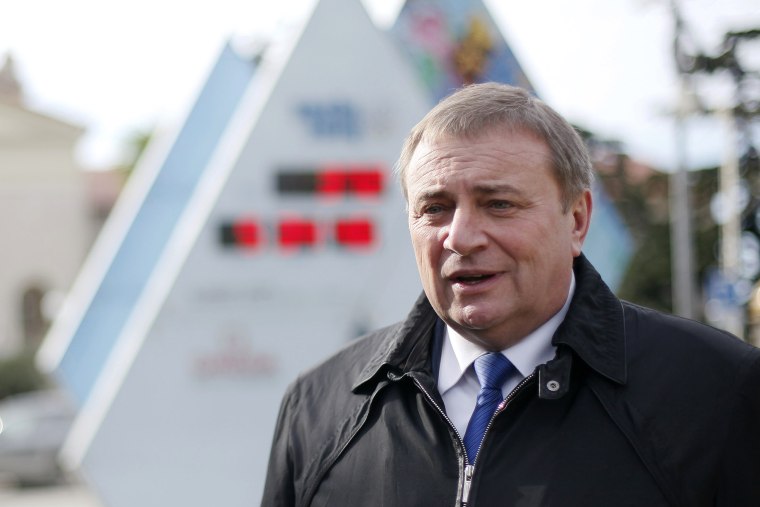The mayor of Sochi, Russia, which in less than two weeks will host the biggest international sporting event in existence, has no concern that a controversial law banning the promotion of “nontraditional” sexual relationships among minors unfairly targets the city’s gay community.
Why?
Because according to him, the city has no gay people.
“We do not have them in our city,” said Sochi Mayor Anatoly Pakhomov in an interview with the BBC that aired Monday.
Pakhomov was answering a question about whether gay people would have to hide their sexuality at the 2014 Winter Games, which begin on Feb. 7. Under the law’s vaguely-worded terms, any Russian citizen found to be peddling gay “propaganda” to children under 18 could have to pay a fine, while any foreigner who does so faces detention or possible deportation. But because the law does not make clear what qualifies as so-called gay “propaganda,” LGBT advocates fear anyone who is openly gay could be in violation of law’s proscription.
"No, we just say that it is your business, it's your life,” said Pakhomov of Russian views on homosexuality. “But it's not accepted here in the Caucasus where we live.”
The mayor went on to admit that he wasn’t “sure” whether Sochi had any gay people, but said that if there were, “I don’t bloody know them.”
The BBC had done a report the night before on gay bars in Sochi.
Pakhomov’s comments are the latest in a string of disconcerting remarks made by Russian and Olympics officials surrounding the safety of gay people attending the Games. Just over a week ago, President Putin declared that gay visitors should feel “relaxed and at ease” while in the country, but requested that they keep in line with the propaganda law and “leave the children in peace.” Days later, Konstantin Dolgov, the Russian foreign ministry's human rights commissioner, presented a 153-page report in Brussels attacking the European Union for trying to push “an alien view” of homosexuality onto other countries. And the International Olympic Committee, criticized for being overly lenient of Russia’s harsh policies, has suggested that anyone who stands up for gay rights at the Games could be sent home for violating the Olympic Charter’s ban on political protests.
Unlike a measure adopted 80 years ago by the USSR, the current propaganda law does not carry criminal sanctions for homosexuality. Pakhomov’s comments, however, bear striking resemblance to that era’s restrictive take on sexual expression, captured most famously during a 1986 joint Soviet-U.S. talk show. When the topic of sex in the media came up, a Soviet woman boldly declared: “There is no sex in the Soviet Union.”
She later added, “on television,” but that part was drowned out by audience laughter.
